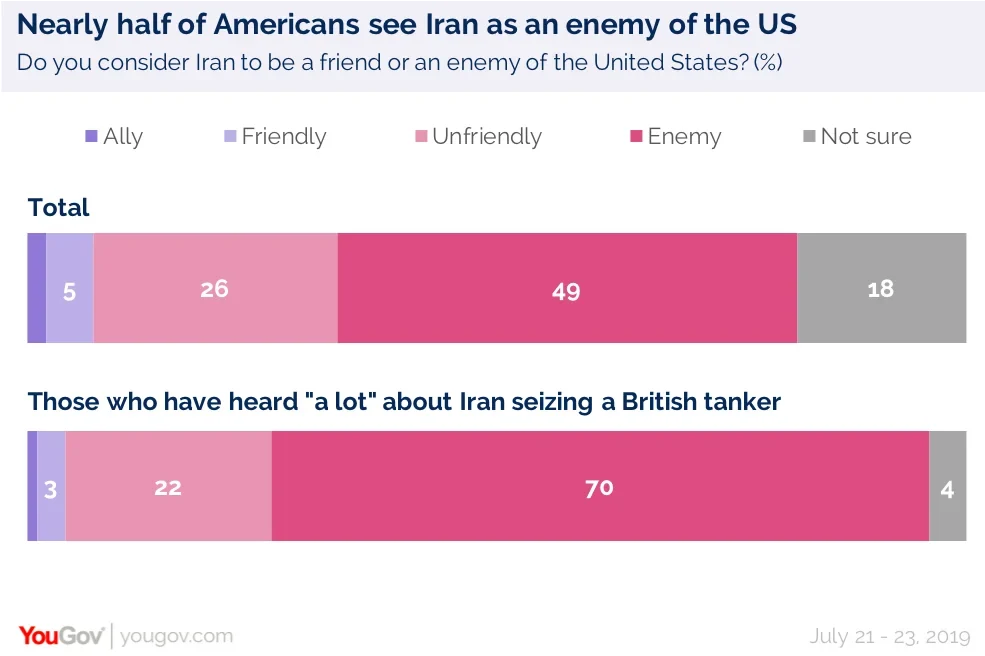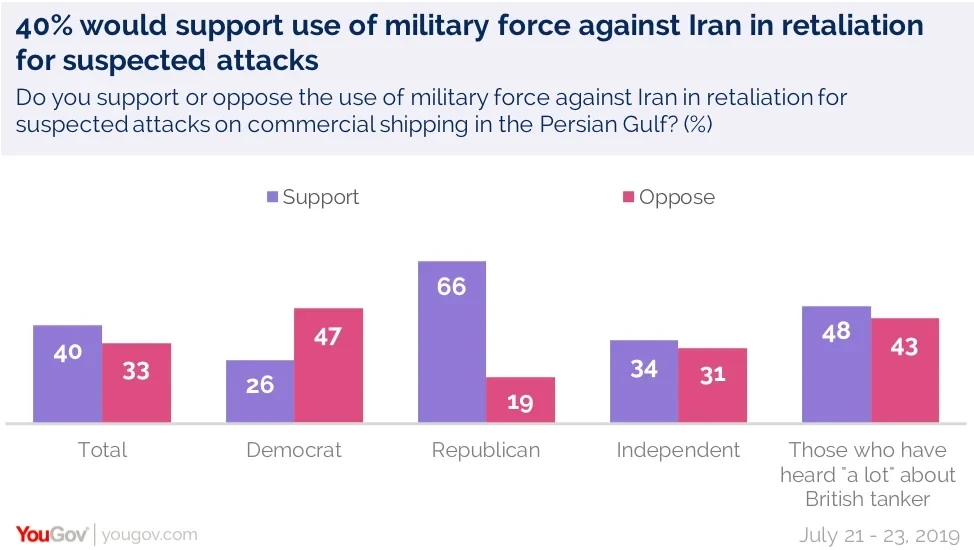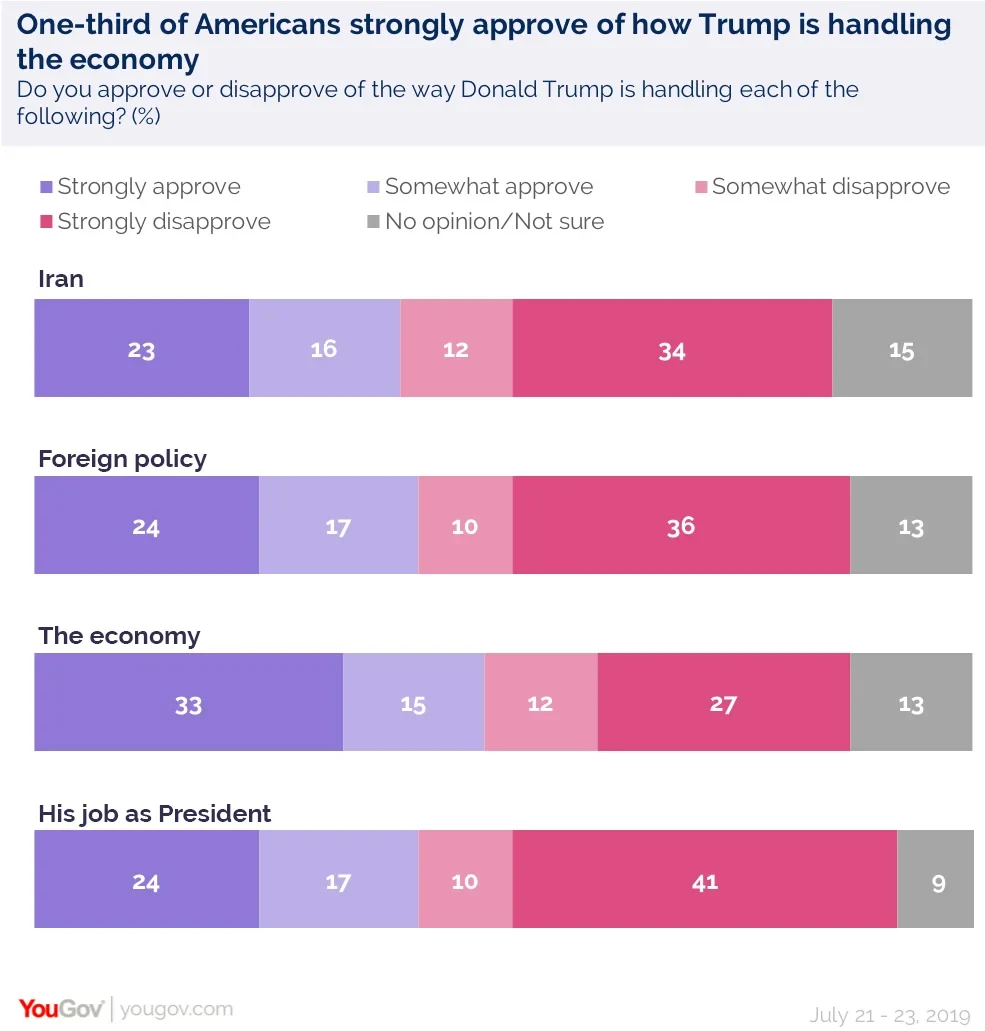The growing tensions with Iran in the Strait of Hormuz have not yet impacted most Americans – more than a third claim to have heard nothing at all about the Iranian tanker seized by British military nor the British tanker seized by Iran.
Only one in five in the latest Economist/YouGov Poll have heard “a lot” about these incidents. But those who are paying attention are far more likely to regard Iran as an enemy of the United States.

Republicans consistently have feared Iran more than Democrats have, and that’s reflected in this poll, too. Among all Republicans, 68 percent regard Iran as an enemy. Even more of those Republicans paying a lot of attention, 85 percent, do. Four in 10 Democrats say Iran is an enemy and 54 percent of Democrats that say they’re paying a lot of attention consider Iran an enemy.
A majority of Americans regard Iran as a threat to the United States (though not necessarily an immediate one). Majorities of both Republicans and Democrats agree, though Republicans are somewhat more likely to see Iran as an enemy.
There is no clear consensus about what to do now. Americans narrowly would favor the use of military force in response to the suspected attacks on commercial shipping in the Persian Gulf. But there are clear party differences, with Republicans in favor by more than three to one, and Democrats opposed.

Those who have paid a lot of attention to the seizure are also closely divided.
Concern about a larger war affects opinion about the use of military force. A majority, 54 percent, believe using military force in response to Iran’s actions is likely to lead to a larger war, and this group opposes military action, 48 percent to 34 percent.
Those who don’t think a larger war would occur because of retaliation by the United States favor military intervention, 65 percent to 24 percent. Both Republicans and Democrats say using military force would lead to a larger conflict, but Democrats are 30 points more likely than Republicans to say this will happen.
The president changed his mind in his early responses to Iranian transgressions. After Iran shot down a US drone, President Donald Trump first ordered the use of deadly force, and then changed his mind. Days later, the US shot down at least one Iranian drone. In this poll, as in previous polls, Americans doubt the president follows the advice of his advisers, are not sure he has good judgment, and by three to one believe he reacts and speaks without thinking very much (on this last measure, Republicans narrowly agree). When the president changes his mind like that it’s seen by 41 percent of the public as a sign of weakness (Republicans, however, overwhelmingly call it a strength).
His handling of Iran receives negative reviews, as does his management of foreign policy in general. Although the president fares well on his handling of the economy, his overall approval rating remains in the unchanging narrow band around 40 percent approval, where it has been for months.







